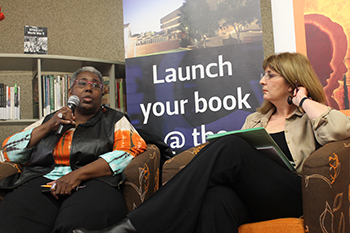Latest News Archive
Please select Category, Year, and then Month to display items
01 October 2019
|
Story Prof Francis Petersen
|
Photo Pixabay

During October, the national focus is on mental health. Mental Health Awareness Month also coincides with a time when our students prepare for the end of the year exams, making it a particularly valuable time for us to think about how we can continuously assist them during their time at university. The value of peer support and genuine care can never be overstressed; that is why I want to encourage our students to reach out to their support networks such as our Department of Student Counselling and Development, as we move towards the end of the year.
Mental health is an equally important matter for our staff. During this month, I want to encourage our staff to also take cognisance of their own well-being. There is a lot of wisdom in the old adage: Healthy body, healthy mind. Many of the initiatives of our Division of Organisational Development and Employee Wellness are focused on the value of physical activity and the negative impact that inactivity can have on one’s productivity and mental health. They also present regular lunch-hour sessions for our staff, where experts share information and practical tips for mental wellness. I want to encourage our staff to attend these sessions and to make use of the services the university has to offer in this regard. It is important to note that suffering from mental and anxiety disorders is not weaknesses and it is not always indicative of a deeper psychological issue; it is an illness and hence can be treated.
On 20 September 2019, a 21-member team was sent off on their run of 1 075 km to Stellenbosch to raise awareness for mental health. The run was organised by the Division of Organisational Development and Employee Wellness and the Faculty of Health Sciences. The team ran in relay format throughout the night and handed the baton of hope to Stellenbosch University on 25 September 2019. I admire and thank them not only for their commitment and stamina, but also for addressing this crucial matter in the public domain and for raising awareness in the many towns and communities along the way.
This is an excerpt from a message by Prof Francis Petersen.

Africa’s lost voice during the Second World War echoes throughout book
2016-08-24

Prof Judith Byfield and Prof Heidi Hudson at the
book launch of Africa and Second World War at the
UFS Sasol Library.
Photo: Rulanzen Martin
If you pick up any historical record on the Second World War, you would see that, to a large extent, Africa has been missing from the history pages until now.
Africa and the Second World War (WW II) is a book edited by Prof Carolyn Brown from Rutgers University and Prof Judith Byfield from Cornell University in the United States. The book is the outcome of various papers presented during a workshop at Rutgers University and at a conference on WWII hosted at Cornell University.
The co-editors of the book were invited by Prof Jonathan Jansen, Vice-Chancellor and Rector of the University of the Free State (UFS), to launch the book at the UFS. The Centre for Africa Studies at the university, in collaboration with the UFS Sasol Library, presented the launch on Tuesday 16 August 2016.
Bestowing honour upon Africa’s role during WW II
Many people do not know that WW II started in Ethiopia with the Italian Invasion. This is generally omitted from discussions or complete histories of WW II. The present book explores the experiences of male and female combatants, peasant producers, women traders, missionaries, and sex workers during the war. “Many people are not aware that Africa produced most of the mineral and agricultural during the war,” said Prof Brown.
Book to reach a greater audience for discussion
The co-editors hope that the book reaches people who teach WW II history, as many talk about only the nationalist movements. “The opening of the book also talks about the importance of South Africa during WW II,” said Prof Byfield. The authors hope that people will read the book to start thinking comparatively about the war.